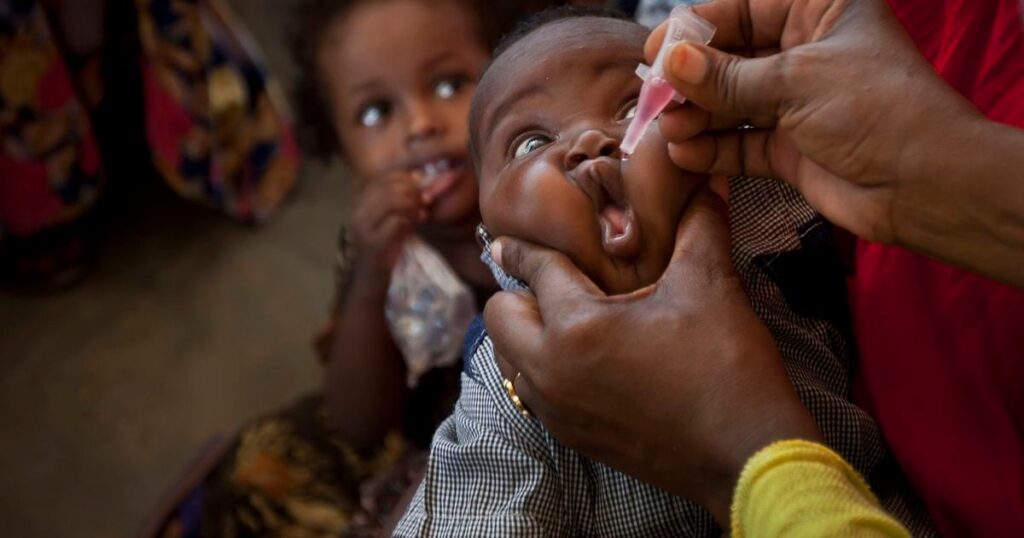Zimbabwe initiated an urgent campaign to vaccinate over 4 million children against polio after detecting three cases linked to a rare mutation of the weakened virus used in oral vaccines.
The cases included a 10-year-old girl who experienced paralysis in January. According to the health ministry, laboratory tests from sewage sites in various areas of the capital, Harare, revealed the presence of a mutated polio virus originating from an oral vaccine utilized in the global eradication effort.
Instances of the live polio virus in vaccines mutating into forms capable of causing new outbreaks are rare but can occur, particularly in regions with poor sanitation and low vaccination rates.
Despite a significant reduction in global polio cases since the initiation of eradication efforts in 1988, the majority of current polio-related paralysis cases stem from viruses initially associated with vaccines.
To safeguard children, vaccination teams are conducting door-to-door visits and administering additional doses at health facilities. Zimbabwe is introducing a new oral polio vaccine specifically engineered to minimize the risk of virus mutation.
The country aims to administer over 10 million vaccine doses in two rounds scheduled for February and March, targeting approximately 4 million children under the age of 10. The goal is to immunize more than 95% of this population to prevent new outbreaks.
While Afghanistan and Pakistan remain the only countries reporting wild polio virus cases, last year witnessed over 500 cases linked to vaccine-derived polio viruses in nearly two dozen nations, mainly in Africa. Zimbabwe last reported a wild polio virus case in 1986.
Health Minister Douglas Mombeshora termed the recent polio detection a “serious concern” but assured readiness to respond promptly. Collaboration with health authorities in neighboring African countries experiencing similar detections underscores the importance of regional coordination in combating the disease.

